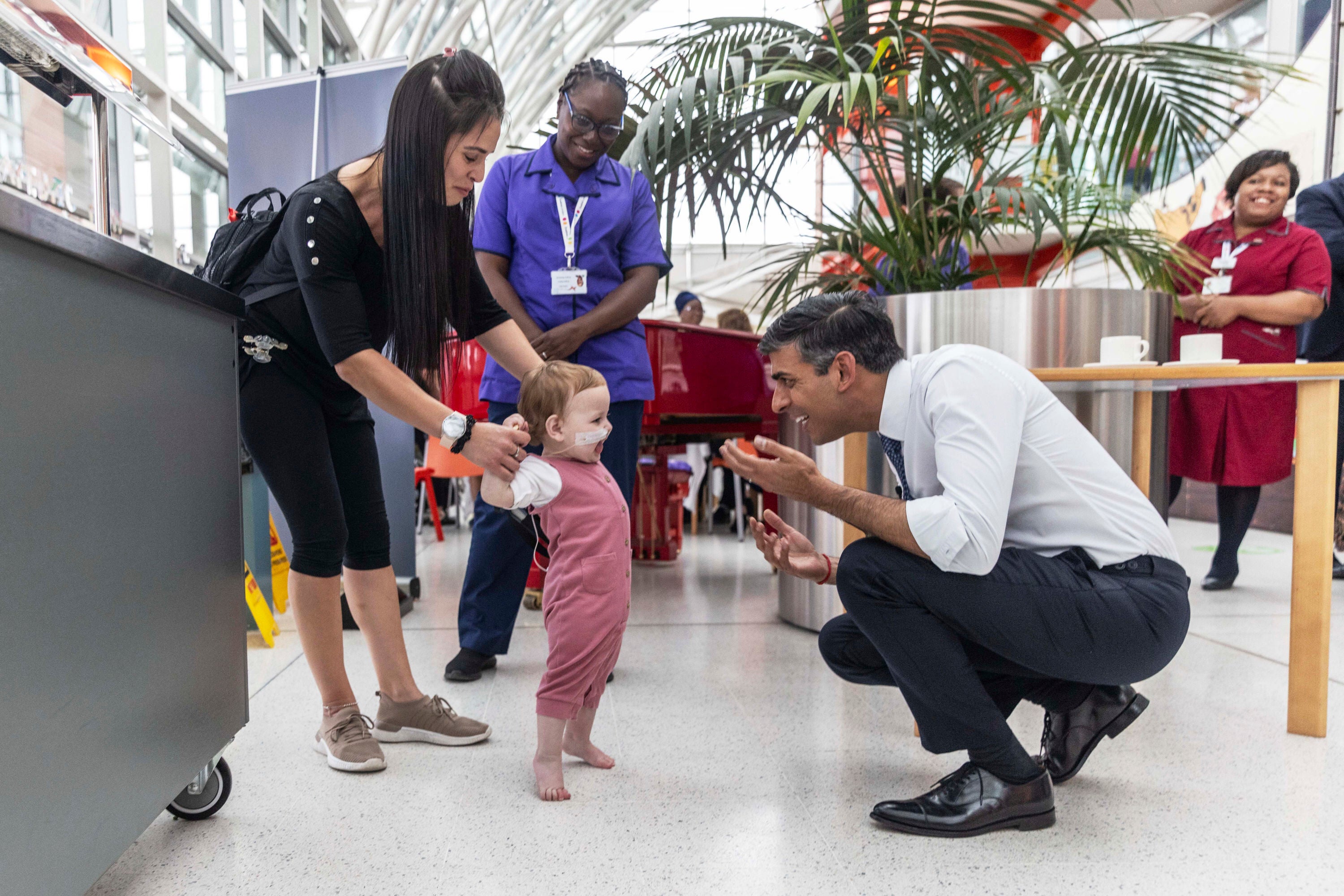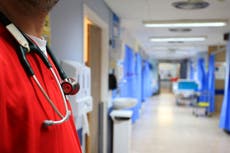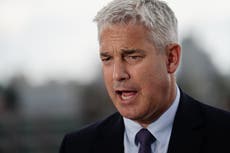If you thought ‘small boats week’ was a disaster, you ain’t seen nothing yet. Welcome to ‘NHS week’
NHS week must have been planned for a long time. Far too long, certainly, to drop it once it became clear that it would be a bit of an embarrassment, writes Tom Peck


From the people that brought you “small boats week”, now comes “NHS week”. For reasons best known only to themselves, the government would like to let it be known that this week they will be trying to trumpet all of their triumphs around the runaway success story that is the National Health Service.
It’s not immediately clear what they are hoping to achieve, mainly because it’s not immediately clear what on earth they could possibly do to convince a single, solitary person that things in the NHS are going well.
It may be that their ambitions for NHS week are merely that it goes better than “small boats week”, which last week ended with the crashing of a government drone worth half a million quid, the evacuation of their prison barge over the discovery of potentially deadly Legionella bacteria on board, another roughly one thousand people arriving by small boat, and six not arriving but drowning and dying in the channel instead.
It seems unlikely NHS week will achieve everything that small boats week managed but it has, within hours if not seconds, got off to a truly flying start. No, waiting for NHS week to go horrifically wrong does not take quite as long as, say, waiting to see an NHS cancer specialist. It’s not clear how long that does actually take anymore, because NHS week began with the government quietly dropping its 14-day target on that front, a completely shambolic outcome which nevertheless would likely have got significantly less attention had they not already told everyone that this week is NHS week.
NHS week must have been planned for a long time. Far too long, certainly, to drop it once it became clear that maybe it would be a bit of an embarrassment. Like, say, last week, when the new waiting list figures came out, which showed that there are now 7.5 million people on NHS waiting lists, up from 7.1 at the start of the year, when the prime minister made cutting NHS waiting lists one of his “five pledges”.
He has, in his typically dignified fashion, blamed the rise not on anything he or any of his government might be doing wrong, but on striking hospital staff.
But, we are told, health secretary Steve Barclay intends to go “on the attack” on health, which is, he and the rest of them reckon, one area where Labour is apparently “weak”. The attack will follow and is indeed already following a truly tedious template.
Anyone who lived through the May/Corbyn years at close hand will know the PTSD-style flashbacks. Some of us really can remember whole years of Prime Minister’s Questions that were reduced to either, “Your Islamophobia is worse than my antisemitism” or vice versa, and its very close cousin, “Your NHS in Wales is worse than my NHS in England”.
It was quite possibly as bad as things have ever got in recent times, and we have already been briefed to expect a full week of it, which is well underway.
The front page of Monday’s Daily Mail is dutifully given over to a claim that Welsh people are flocking to English hospitals to have their hip and knee operations, rather than wait longer for the Labour-run Welsh NHS to come to their rescue.
The claims are highly dubious, but even if they were not, you would think that someone would point out that maybe this isn’t a wholly wise idea.
A government reduced to making political capital out of the suffering of its own people is maybe one that is running out of time and ideas. During the Covid-19 pandemic, governments all around the world leapt on any measure they could find through which to favourably compare their outcomes to comparable countries, and on some the UK did well (while not so much on others).
Wales, Steve Barclay must surely know, is not on another continent. And a full week of pointing at his own people and saying how bad everything is for them may not be quite the slam-dunk he has in mind.
And, even so, if you can’t get a hospital appointment, or if you call for an ambulance and none turns up, or you’re waiting 28 hours in A&E, what you don’t want to hear at that point is that everything’s much worse down the road and you should count yourself lucky.
Because people, by and large, don’t feel all that lucky at the moment, and though one makes political predictions at one’s peril these days, it does not seem likely that by the end of NHS week that luck will have turned around. Mercifully, we don’t have to wait that long to find out.
Join our commenting forum
Join thought-provoking conversations, follow other Independent readers and see their replies
Comments


Bookmark popover
Removed from bookmarks